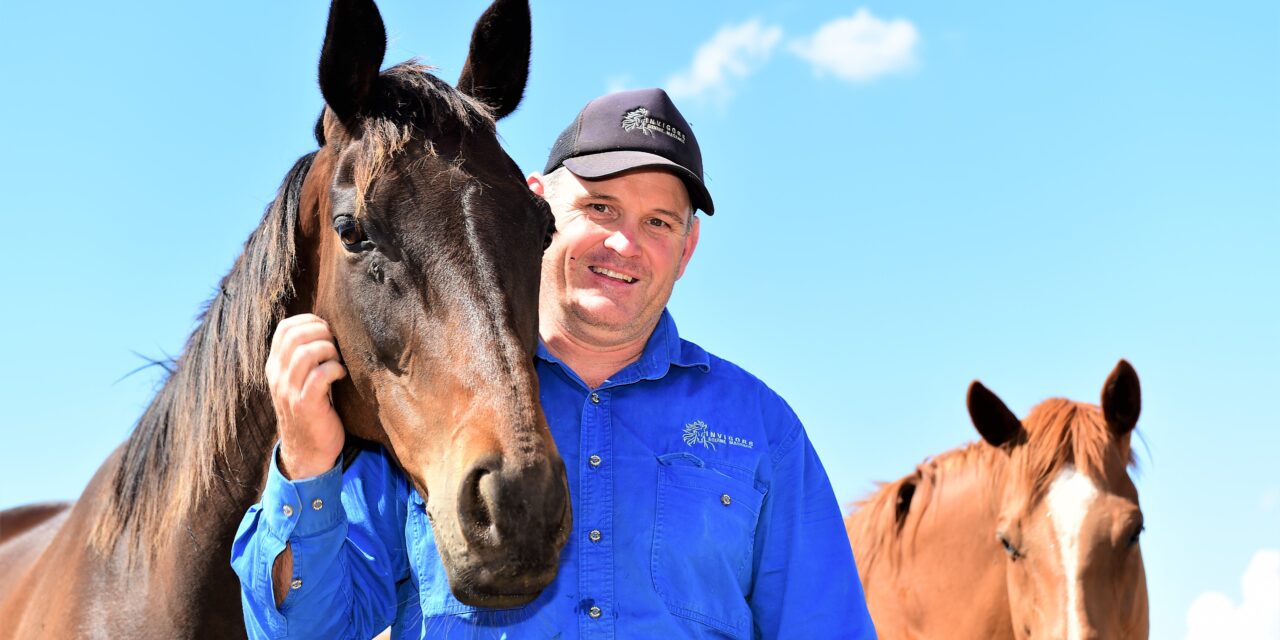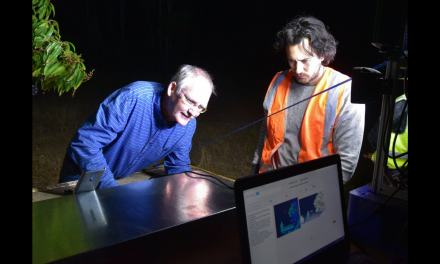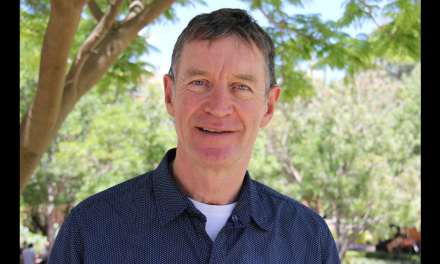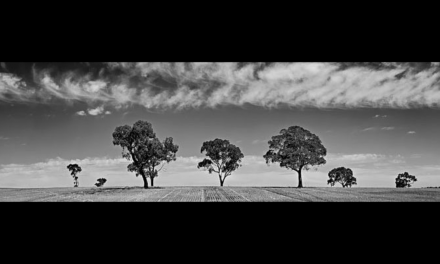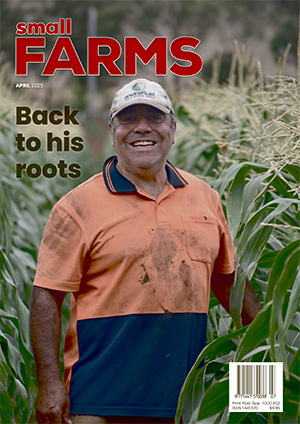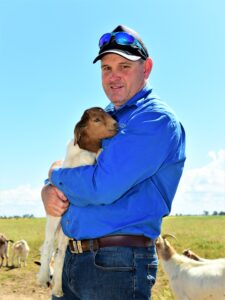
In the digital age anything is possible — who needs farming experience when you have Google and YouTube to help you make the right decisions when it comes to establishing your own small farm as the next big thing in your life, asks ANDREW MOLE.
Stick with us and see if you can follow the logic.
A couple buys a 16-hectare property on the outskirts of Echuca, on the Murray River in northern Victoria.
It’s a small block, but not the smallest — so they agree they should do something with it beyond giving it a name, like all good farms.
The winning entry was Arrowhead Farm, as their block is shaped just like an arrowhead. So the farm now fits the bill with its paddocks, potential and proud new name.
But here’s where it gets a bit tricky.
She grew up on a dairy farm and can milk a cow — but they haven’t got any of those.
He grew up on a sheep farm — but can’t shear. Doesn’t matter, they haven’t got any sheep either.
So Jo and Jay Court agreed to compromise by Googling ‘farming’ and seeing what YouTube thought might work best for them.
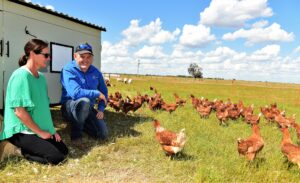
Which prompted the acquisition of 50 hens — Isa Browns to be exact. With a strategy.
“Eggs,” they chimed together, “will be the by-product”.
The hens, not quite ready to lay, were enlisted to be a small, feathered, army of fertilisers, as their little caravan (remade to resemble the farmhouse on this couple’s slice of paradise) is wheeled around the property to help rejuvenate the soil.
Although when the eggs do start rolling, they will add a little to the cash flow.
Around the same time, the decision was also made to acquire goats, Boer goats to be precise. With a strategy.
Goats eat anything, the Courts believed. Everyone knows that, don’t they? And their 16ha was carpeted in Bathurst burr.
Once they cleaned the place up, the couple planned for them to be the nucleus of an ever-expanding goat meat business.
So how’s that all working out?
Well, the chooks still haven’t started laying — but surely they will. Fortunately, they are champion producers in the fertiliser department.
Unfortunately, it turns out Boer goats aren’t as voracious as their feral cousins in the pastoral country. However, they really appreciated the first $500 worth of trees Jo and Jay had planted across the property.
Every goat escaped, ate the trees and scared the neighbours (yes, that was lesson two — all Boer goats are related to Harry Houdini no matter how good you think your fences are).
And there you have it. Fertiliser/eggs, weed removalists/meat goats and two lots of trees. Oh, and we almost forgot — they host racehorses being spelled by local trainers.
Now you add it all up and it’s immediately clear what Jo and Jay are targeting as their long-term agribusiness.
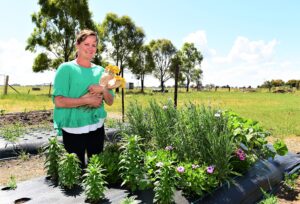
Flowers. Obviously.
You worked that out, didn’t you?
Of course you did, even though the floral business is still very much in the trial phase, with greenhouses and potting sheds on the drawing board.
“We spent a lot of time Googling and on YouTube so we could get a handle on farming and what might work for us,” Jo explained.
“It’s a marvellous resource, although unfortunately nearly everything to do with being a commercial flower grower comes out of the US, so it’s often hard to match up planting times, let alone grasp the differences in terminology, soils and various other bits and pieces.
“But we do have sunflowers (including pink, red and the traditional yellow), zinnia, dahlias, poppies and bunny tail grass in at the moment to see how they will go.
“We don’t exactly have green thumbs yet but we will see how it goes, we are both very interested in gardening and are determined to make a real go of it.”
They also have a lot of praise for the Dish the Dirt podcast, which is an Australian show on flowers — and they never miss it.
Jay says while they work on the floral endgame, the initial focus will turn to the goats, which started kidding towards the end of September.
He says they got a lot information and advice from Ian Turpin and his Camboer Goat Stud, which is not too far from Arrowhead Farm.
It was Ian who provided them with the bucks responsible for the current kidding program and Jo/Jay are also doing a lot of extra online research — as they do.
“Ian was great, he was so generous with his time and he really knows his stuff so it was great that we were able to find him [yes, via Google] and discover he was so close to us,” Jay added.
“Goats being goats, they are naturally hardy and we don’t expect to have too many problems because of our location.
“They are susceptible to foot scald in excessively wet conditions, just like a sheep, but even with all the rain we have had there are still plenty of places for them to have dry higher ground.
“There is no worm burden here, and although fluke worms are a particular challenge for the breed we don’t have any sign of those so that’s another tick in the plus column.
“We only have 53 on the property today, but that will go up with the kids, and we will look to keep building numbers from there.
“They can go straight to the Seymour abattoir for processing, and we expect that will be the plan for a while, although we do have a branded product straight into butchers in the back of our minds.”
Seduced, in part, Jay reveals, by reports of B-doubles packed to the rafters with Rangeland goats, fetching $220,000 — Rangeland being the fancy marketing moniker for the feral goats that rule from the pastoral country of South Australia and NSW to right across the Top End, ending somewhere in Darwin’s outer suburbs.
An ambitious goal at this time, as they both have jobs off-farm, but for a very small, small farm business circa 2022, Jo and Jay clearly see big things ahead.
And while they are not superstitious, they couldn’t help but think ‘good omen’ when they formally took over ownership of Arrowhead Farm on December 20, 2020.
Although Jo wasn’t thinking that when she started planting the first ill-fated trees down their driveway.
“Every time I drilled a hole the soil would change, I’d get clay, the next hole would be sandy, then back to clay — and we’ve got clay across the holding yet one end is mostly dark soils and the other end is red (with clay underneath if it’s not on top). I couldn’t believe how often it changes.”
Both confess they love the country lifestyle better than being in suburban Echuca-Moama — they are close enough for work, shopping, healthcare and nurseries (to buy more trees as required for the goats).
It is also an excellent fit for Jay’s other life, as a hard-working therapist who started with humans but has mostly moved onto new frontiers.
When not playing old MacDonald had a farm, etc, etc, Jay has become a sought-after equine therapist — a role which is now established across the thoroughbred racing industry as well as with show and competition horses.
A role which also requires him to be part horse whisperer, part holistic shaman and a lot of experience and skill to fine-tune some of the most expensive horseflesh in the state or country.
“I started just massaging people about 16 years ago, then branched into the equine seven or eight years ago and it is now far and away the majority of my business and I work with trainers across Victoria and NSW,” Jay said.
“Having the property also helps with work because if I am away down south, and NSW clients want to access me, they often bring their horses here for me to work on the second I return.”
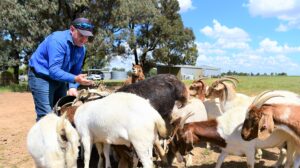
Then just when you think this multitasking twosome have run you through everything they are doing, or planning, for their small farm, Jay politely offers a drink to whet the whistle before heading off — waving his arm towards a corner of their recreation room where there is a full bar set up.
It has three beers on tap, a dazzling array of spirits across its shelves and beer kegs with faux cowhide covers as seating.
But as you would expect, it’s yet another of their sidelines because they must have had at least a spare 30 minutes a week to invest in another project.
So rather than waste all that free time, they also make their own beer, their own spirits and some of them, by all accounts, pack something of a punch.
Something that might help ease their transition from townies into genuine rurals — regularly jumping on the quad bike for a spin around the boundary to check those fences before the next call from a concerned neighbour to tell them there are goats back on the road.

